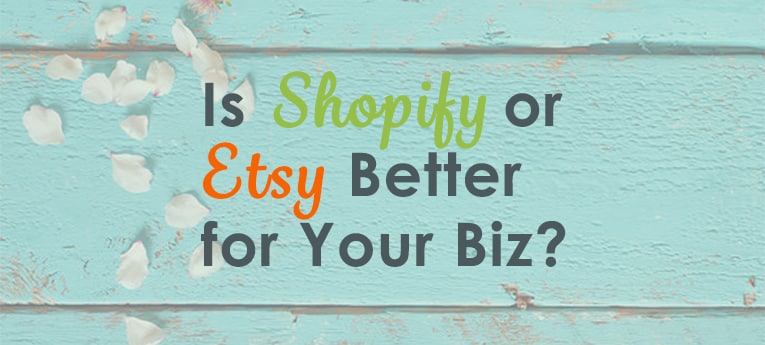Marketplace vs. Online Store
Customers trust shopping on Etsy. That trust is one of the biggest benefits of utilizing a marketplace to open your online store. As a new brand, using an established brand to build trust is a great way to get new customers. You also have the potential to reach interested shoppers when they search the marketplace for products like yours. There are more benefits to using a marketplace like Etsy, but we will dive into those in subsequent paragraphs.
Using a marketplace solution does come with a few drawbacks including a lack of customization. One of the biggest benefits of using Shopify as an online store is your ability to customize the store. Shopify does not offer as many customizations as building an online store on your own or with a professional, but the customizations are generally enough for most new businesses. With Shopify, your brand can have a customized website. If you need more advanced customizations, you can hire a developer familiar with Liquid/Ruby.
Shopify also aids with the logistics of configuring your online store. In fact, Etsy has this benefit too.
Helpful E-Commerce Planning Tools
No matter what platform you choose for an online store, the customer must understand the process once they place an order. Having clear processes, expectations, and accurate description encourages sales. Managing the expectations of the customers is vital to ensuring satisfaction. Happy customers are more likely to return!
Accepting Payments
When it comes to accepting payments for your store, both Etsy and Shopify provide solutions to process payments. Etsy has its own payment processor in addition to accepting PayPal. Shopify has several payment options to choose from with varying fees and conditions. For more information visit Shopify’s payment gateway page.
Both platforms take a larger cut per sale than if you created a webstore on your own. Which option is best for your business, in the long run, will depend on the starting budget for your webstore, web design experience, and sales forecasts.
Major Differences
We have discussed a few differences between Etsy and Shopify including how Etsy is a marketplace while Shopify is a branded store solution with more customization features. Etsy does have an add-on feature for further customizations and e-commerce solutions, but we can save that for another post or you can read about Pattern here.
Unique to Etsy
Etsy also advertises its products on social media and other websites. This is great for start-up businesses with limited advertising funds. There are some downsides to the advertising, but we will chat about that in the downsides section below.
Another perk for those with low overhead is that you can start your Etsy for free or very little.
Unique to Shopify
Unlike Etsy, Shopify has e-mail marketing. This way you can stay in contact with those you do business with. This makes it easier to convert one-time customers to returning customers.
Plus, if you like a lot of what Shopify offers, you may be interested in looking at similar platforms before you get started with Shopify. Shopify is a leader and one of the first to approach e-commerce like this. However, since its inception, several other great solutions exist.
Summarizing the Similarities of Shopify and Etsy
Shopify and Etsy both have different fees structures and terms, no different than eBay, Amazon, Wix, or other comparable platforms (marketplace or commerce based). Determining which platform(s) are right for your business requires careful consideration.
The Downside to Etsy and Shopify for Your Business
Shopify offers more customizations than Etsy, but both are limited compared to custom web development solutions without spending more money.

